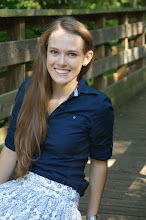I blogger friend posted regarding how God has used unschooling in her home to educate her children. I thought I would join in on the conversation. I have posted in the past about how we choose to educate our children; however, I am always reevaluating how "school" gets done.
My guess is there will always be an educational debate: public school vs. homeschool vs. Christian school, unschooling vs. traditional vs. classical homeschool. The options are immense, and one can be easily overwhelmed.
Having been a traditional classroom educator, I find that my strengths lie with textbooks, formal testing, and schedules. To some, that will make them cringe. Truthfully, I have been learning as we go that letting up on some of that is a good thing. That is not to say that schedules and some formal assessment are bad. I have found that there is no perfect way to educate my kids. For one thing, they are all different: in their learning styles, interests, and abilities. However, for my own sanity, I need to have some sort of scope and sequence to keep order in my home. Without order, Mommy can go a tad crazy.
There are many days that I wish I could set aside the expectations of other educators who do not know my kids and explore the world in which my kids live. Some days like that are good. I have watched my son in particular grab on to a concept and run with it. His eyes light up as he delves into anything he can get his hands on to find out more about what he is studying. That is way beyond cool! He is learning in a way that will stick and will make him smile too. On the other hand, though, there are many things in life that we need to learn that honestly we don't really want to learn. We have no choice in many cases. Take adverbs for example. There are fun ways to teach them, but my kids would not gravitate to grammar by choice. This is where I think that a combination of teaching styles is necessary.
Over the last year, I have changed up our reading curriculum drastically. We use whole pieces of literature and many unit studies. The kids seem to prefer that, and they are learning better with that format than with the bits and pieces of lit that an anthology in a lit program provided. I struggled with what to include. Do I go with only what would interest them? Would that do them a disservice when they went to college? Just because a piece of literature was traditionally taught, did that make it a necessary component of my curriculum? As we have gone on, they have enjoyed the novels, endured the poetry, and could take or leave the short stories. I will continue to tweak the curriculum as we go.
I have had my big girls read additional books that develop them as young Christian women, and they have developed a passion themselves. My little man just today went down to the "library" in our basement and found a book that he fell in love with. He even blogged about it! My little one is enjoying diving into American Girl books, learning the history that goes with them, and writing her own plays with some American Girl software.
We will be formally testing this month at a private school nearby. For me, it has been a good tool to evaluate my kids. Again, maybe it is just engrained in me as a trained educator.
As you can see, our format has morphed from completely traditional very scheduled to a more comfortable, flexible traditional environment. I feel we are always learning, even as adults who are not "in school." As I educate my children, I have the privilege and challenge to find the awe and opportunity to learn in every day of life no matter if the textbook is open or not.











No comments:
Post a Comment